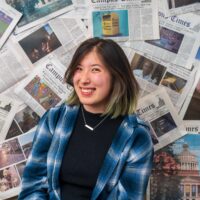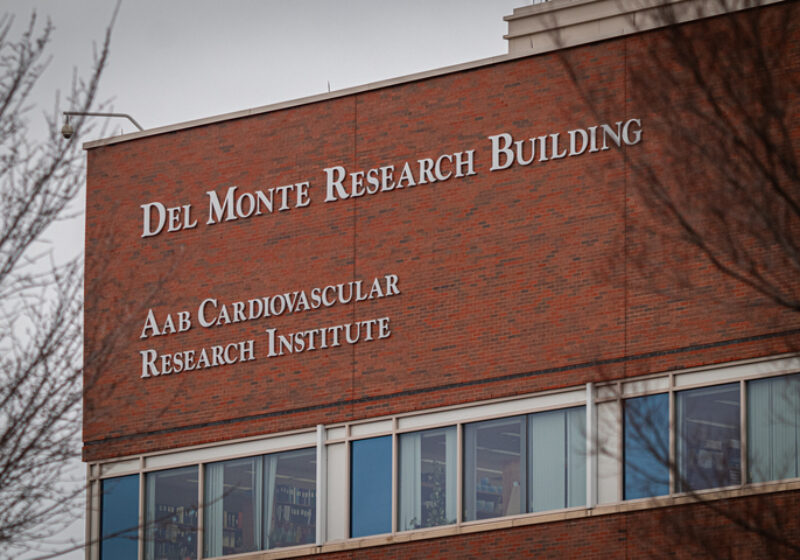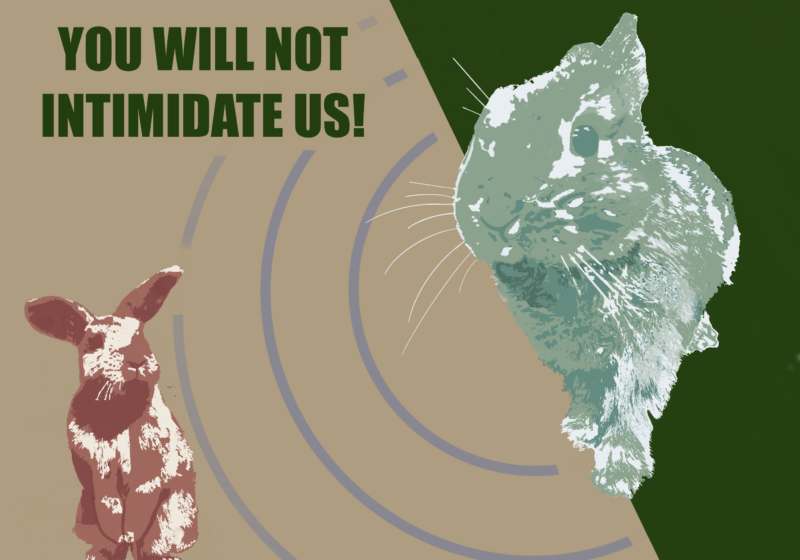Stepping into the Hartnett Gallery for the first time, especially as an upper-class student, is perspective-shifting. Unlike more conspicuous showcases like those in Frontispace, Hartnett is the hidden gem of Wilson Commons, tucked into the hallway leading from Graham Smith Plaza to Hirst Lounge.
Thousands use the staircase that stands just paces from the exhibit daily, and many squint at the balcony area of the gallery visible from the stairs down to the Pit — but it’s somewhat uncommon to see wanderers in Hartnett unless they are desperately lost.
However, upon entry, the exhibits draw you in. In the past, they’ve had artists from around the University and the country showcase their work — from full-blown sculptures to elaborate paintings, weaved tapestries, and print photographs. Budding artists from within the University — students, staff, and faculty alike — have been given the opportunity to present their works through Hartnett, many for the first time. Putting a couple of those (often literal) pieces together is the job of the Gallery Curation Committee (GCC), a UR student-run organization.
“Hartnett is [its] own space that GCC just borrows for three exhibitions out of the year,” said junior Vishwa Shukla, the club’s undergraduate director, in an email to the Campus Times. “Outside of those exhibitions, GCC has no say in the Hartnett exhibitions.”
For the three exhibitions, the GCC’s members are required to send out a call for art, review all submissions, vote on the artists they will showcase for the year, and help install the exhibits as necessary.
“When we set up a new show, we often ask our general members to help out if there is a large exhibit coming in,” said senior and club Business Manager Bobby Marcinauskis. “There was once, we had these giant clay pots that had to be moved very delicately, and that requires the help of general members.”
GCC’s eboard is the point of contact for the artists they showcase when determining the transportation of their work, planning their reception, and creating publicity materials. The GCC team has also brought different student organizations together within the Hartnett space — they host an annual Hartnett A Cappella Night as a promotion for their exhibits, for example.
According to Shukla, the GCC’s longest-tenured member, the club has been shifting toward holding more general member events. “Before, it almost felt like a professional club where all we’d do was interact with professional artists,” she mentioned. Now the club is also focused on social events, such as taking trips to the Memorial Art Gallery.
For many of the students in the GCC, being part of the club lets them experience art from an administrative and curative perspective — something they would never do as part of their general education.
“I’m majoring in neuroscience, but I am minoring in studio art! My degree is more about me actually creating art, but I choose to explore the curation aspect through [the GCC],” Shukla said.
While some GCC members formally study art, others use the club to engage in the art scene on campus. The club often ends up working with UR Studio Art and Art History professors to find professional artists for their exhibits. In addition, the GCC hosts an annual undergraduate juried show, which brings them further into the fold of the artists on campus.
“As I began actually figuring out what the club did, having direct access to artists and understanding the operations of a gallery, I was hooked,” said Marcinauskis, who studies Economics and International Relations. As a result of his time with the GCC, he aims to build a company that combines his love of economics and the professional art world post-grad.
“I’m looking to go to medical school after graduation, so I’m not sure how much time I’ll have for art,” Shukla said. “In an ideal world, I could work at a gallery or even open up my work for commission, but we’ll have to see.”




